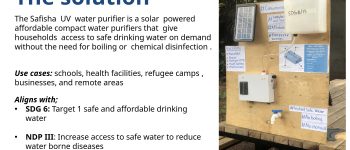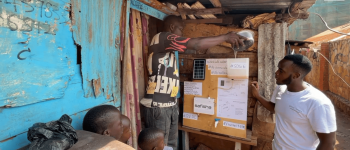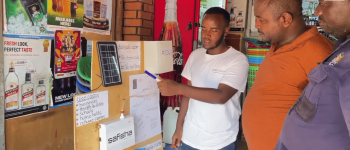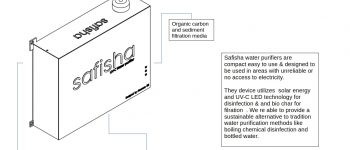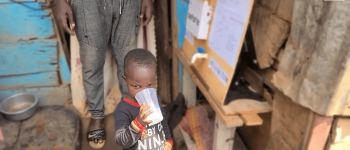Safisha
Safisha is a sustainable water purification initiative designed to address the issue of limited access to safe drinking water, particularly in Uganda. With 70% of diseases being treated in the country linked to waterborne illnesses, Safisha aims to provide an innovative, cost-effective, and environmentally friendly water purification solution for individuals and communities.
We are focused on creating compact, solar-powered 12V water purification systems that deliver clean drinking water, even in off-grid areas. By utilizing solar energy, Safisha eliminates the need for unsustainable methods like boiling, chemical disinfection, or reliance on plastic bottled water, which contribute to environmental degradation and high costs.
Key features of Safisha include:
1. Community centered Design: Our purifiers are designed with the needs of communities we are trying to serve in mind. This Encourages reusable purification systems to reduce plastic waste pollution.
2. Affordable Access: inspired by SDG 6 we target vulnerable and undeserved communities and households with low-cost solutions.Meant to increase access to affordable and safe water
3. Health benefits: Mitigates exposure to waterborne diseases as a result of poor water quality.
4. Environmental Benefits: Reducing deforestation for fuel to purify water , plastic waste pollution from single use plastic water containers and carbon emissions.
5. Local Impact: Emphasizes local manufacturing and distribution to empower communities and create jobs.
Safisha aligns with global sustainability goals, particularly SDG 6 (Clean Water and Sanitation) and Uganda’s NDP III (Increase access to safe water to reduce water borne diseases), offering a scalable solution that addresses health, economic, and environmental challenges associated with water access.
To solve these challenges, many people rely on unsustainable and harmful ,methods:
1.Boiling water, which consumes firewood or charcoal, contribute to deforestation and emitting approximately 2.3 million tons of CO2 annually (UNDP Uganda, 2023).
2.Chemical disinfection, which is expensive and carries potential health risk with prolonged use, particularly in rural areas.
3.Plastic bottled water, which increases plastic waste pollution, with over 600,000 tons of plastic waste generated annually in Uganda, severely impacting water sources and ecosystems (National Environmental Management Authority, 2023).
These approaches are not only environmentally damaging but also economically burdensome for low- and middle-income households and vulnerable communities.
Approach
Safisha offers a solution to these challenges through sustainable/ innovative UV-C water purification systems:
*Compact and Solar-Powered Technology . Safisha systems are solar powered ensuring reliable access to clean water in off-grid areas. This cuts the reliance on energy-intensive methods reducing carbon emissions.
*Cost-Effective and Inclusive. Safisha systems are tailored to meet the needs of businesses, rural schools and health facilities ,refugee camps and low households, offering an affordable alternative to current methods.
*Health and Environmental Impact. By reducing exposure to waterborne diseases, Safisha enhances public health outcomes. Our solution supports the achievement of SDG 6 (Clean Water and Sanitation)
*Local Communities: Community leaders
*Manufacturing & Supply Chain Partners: Local manufacturers, suppliers
*Distribution Partners: Retailers, distributors, logistics companies
*Government & Regulatory Bodies: Ministry of Water, Health Authorities, Standards Agencies
*Financial Partners: Microfinance institutions, impact investors, donors
*Environmental & Development Organizations: NGOs, climate advocacy groups


